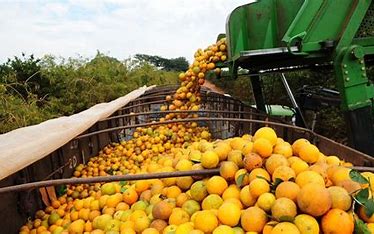Sets will be completed in Piracicaba with batteries imported from Germany
11/25/2022
/i.s3.glbimg.com/v1/AUTH_37554604729d4b2f9f3eb9ad8a691345/internal_photos/bs/2022/j/v/urwyFuQ9yXwOGWYosOgQ/25emp-100-borg-b1-img01.jpg)
Marcelo Rezende — Foto: Divulgação
Keeping up with the electrification of vehicles without losing money or going out of business has become one of the biggest challenges for many auto parts makers. The large ones have been able to adapt by buying up other companies. At the beginning of the year, the U.S.-based BorgWarner, a well-known player in components for combustion engines, acquired the German battery maker Akasol, which already had three plants – two in Germany and one in the United States. The fourth one – the first since the acquisition – will be inaugurated in the first quarter of 2023 in Piracicaba, São Paulo, and already has a client: the Brazilian subsidiary of Mercedes-Benz.
After posting a global turnover of $14.8 billion in 2021, BorgWarner has set the goal of generating 45% of its revenues from electrification systems by 2030, said Marcelo Rezende, the company’s managing director for batteries in Brazil. This year alone, the company won $2.9 billion in new businesses in the electric vehicles market, compared with a target of $2.5 billion originally projected to be reached by 2025, he said.
Mr. Rezende is a trained mechanical engineer who came from Delphi, a company acquired by BorgWarner two years ago. The deal included Delphi’s plant in Piracicaba, the same that has just been revamped to receive Akasol’s new line, a brand that will remain in the market. The battery systems will be produced in a previously rented facility.
The systems will be made from imported components, which will be complemented with items produced in Piracicaba. The lithium-ion batteries will arrive from Germany through the Port of Santos. It is a large component (1.8 x 0.7 meters) that weighs 500 kilos. The management and charging modules will be added in Brazil, as well as one that interconnects the others. Each bus will have, on average, four sets of batteries, distributed on the roof and rear of the vehicle.
According to Mr. Rezende, the local sourcing of part of the systems will guarantee the bus buyer access to Finame, a special credit line for commercial vehicles offered by the Brazilian Development Bank (BNDES), which has been adapted to include electric vehicles. Mercedes’s bus also marks the German company’s debut in electromobility in Brazil – the automaker is the first customer of BorgWarner’s new operation as well.
Mr. Rezende believes, however, in the expansion of electrification not only in the city bus segment, but also in the truck and delivery van segments. He says the company has been talking to other automakers. “Brazil is the fourth-largest commercial vehicle market in the world and the demand for electric vehicles is expected to grow 400% in the next five years,” he said.
Although at the beginning of the operation the pace will be slower, the new plant will have the capacity to produce 4,000 battery systems per year. According to Mr. Rezende, when it reaches this volume, the amount of power produced will be enough to power 200 homes for a year.
BorgWarner’s management team does not reveal data such as investment in the new plant, number of employees or sales in Brazil, where the company has been operating for almost 50 years. But the company cites sales growth percentages in several divisions. According to BorgWarner, in the year to date, the Brazilian plants have produced 13.4% more than in 2021, including supply to automakers, aftermarket, and exports.
The production of starter motors and alternators to serve the automakers in Brazil grew 110%. The increased demand for cars with turbocharged engines is also benefiting BorgWarner, which is expanding its production of turbochargers in Itatiba, São Paulo.
According to the company, turbochargers exclusively for bi-fuel engines (which run both on gasoline and ethanol) will be in 30% of the light vehicles sold in the country this year. This share is expected to increase to 37% in 2023, 45% in 2025, and 54% in 2030.
This explains why, despite the strategy for electrification systems, the company is not neglecting the combustion vehicle market. “We believe Brazil is still going to benefit greatly from the technological path of its biofuels in the light vehicle segment,” said Wilson Lentini, BorgWarner’s general manager for emissions, thermal, and turbo systems in Brazil.
The advance of electrification in other parts of the world is also beginning to open up opportunities for plants in Brazil, which are taking over the supply of components that are no longer being produced in regions that are more advanced in electrification, such as Europe.
According to Mr. Rezende, the company will start next year exporting these products to Argentina, Uzbekistan, and South Korea, meeting global needs of a customer.
In 2022, 4% of BorgWarner’s sales of starter motors and alternators were injected in expanding the capacity of the production lines for these components at the Brusque plant, in Santa Catarina. The plan is for these investments to reach the equivalent of 6.5% of sales in 2023 and to set up a third production shift at the plant. Besides Brusque, the group’s other plant, in Itatiba, São Paulo, also operates in three shifts.
For Mr. Rezende, in the age of electrification, local production continues to be a priority whenever possible. “The decision for the fourth battery system factory in Brazil was a strategic one, so the company will be able to serve customers in the region.”
*By Marli Olmos — São Paulo
Source: Valor International

/i.s3.glbimg.com/v1/AUTH_37554604729d4b2f9f3eb9ad8a691345/internal_photos/bs/2022/N/a/BNwj0cTo2LUlszzvX32g/25agr-100-taxagro-b12-img01.jpg)

/i.s3.glbimg.com/v1/AUTH_37554604729d4b2f9f3eb9ad8a691345/internal_photos/bs/2021/S/A/X5C02nR7OsfSFXZSuudg/191208rodrigo19.jpg)

/i.s3.glbimg.com/v1/AUTH_37554604729d4b2f9f3eb9ad8a691345/internal_photos/bs/2022/b/0/TGeGR8RVm2JgnFKt2PgA/070519jpmorgan026.jpg)
/i.s3.glbimg.com/v1/AUTH_37554604729d4b2f9f3eb9ad8a691345/internal_photos/bs/2022/y/y/Pw8jPCQDy88m5KyRKY5Q/23fin-100-beneficio-c1-img01.jpg)
/i.s3.glbimg.com/v1/AUTH_37554604729d4b2f9f3eb9ad8a691345/internal_photos/bs/2022/4/0/AjdM5HQfuLsN7Ab2qLlw/161019ilan042.jpg)
/i.s3.glbimg.com/v1/AUTH_37554604729d4b2f9f3eb9ad8a691345/internal_photos/bs/2022/P/A/d9QsAiRn6a1NhOLH5fTA/frigorifico-bpu-no-uruguai-divulgacao.png)
/i.s3.glbimg.com/v1/AUTH_37554604729d4b2f9f3eb9ad8a691345/internal_photos/bs/2022/s/i/70U2WdRKACwBo88uBGzw/copel-reproducao-facebook-copel.png)